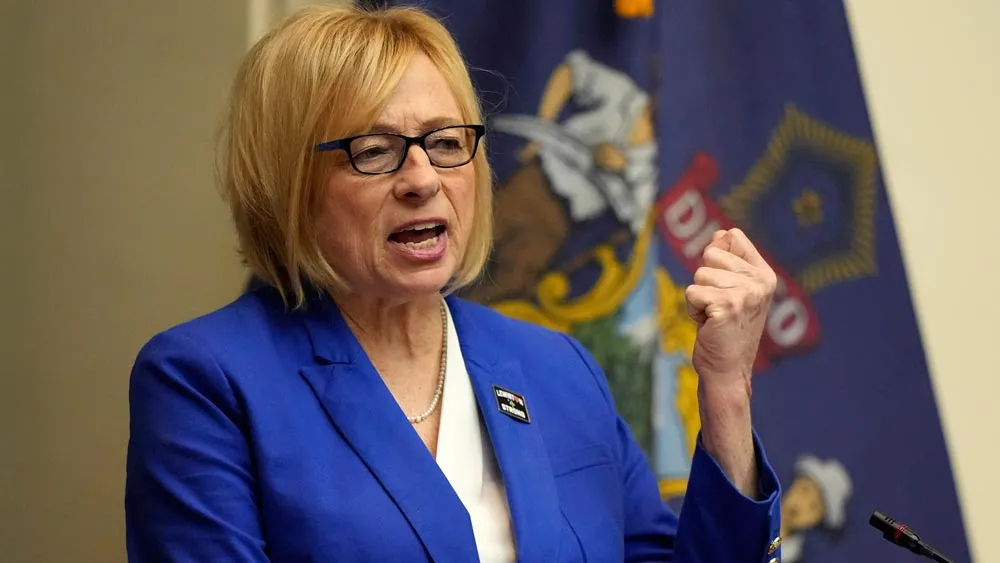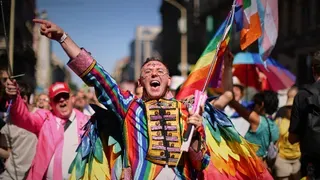April 26, 2012
Praise, Skepticism for Murdoch in UK Newspapers
Jason St. Amand READ TIME: 2 MIN.
LONDON (AP) - Cagey. Cuddly. Witty. Master of the intimidating pause.
The reviews in Thursday's newspapers of Rupert Murdoch's performance on the stand at Britain's media ethics admired the performance, despite doubts about the accuracy of the story the News Corp. executive chairman spun.
"Mr. Murdoch was a picture of elderly innocence," Matthew Deacon wrote in The Daily Telegraph. "How could anyone ever have spoken ill of this sweet, gentle old man, with his thoughtful pauses and cloudy memory?"
But Deacon detected a different side when Murdoch was asked whether, on first meeting David Cameron, he had concluded the prime minister was a "lightweight."
"'No,'" replied Mr. Murdoch. He left a tiny, icy pause. "'Not then.'"
Martin Dunn, a former deputy editor of two of Murdoch's London papers, The Sun and News of the World, recognized the technique.
"Rupert has always been a master of the pregnant pause. Within News Corp., it was a tool he used often to uncover information as executives eagerly volunteered to fill the silences. Yesterday, it was his ultimate defense; leaving the inquiry waiting interminable seconds for his next answer," Dunn wrote in The Guardian newspaper.
"There is no way Murdoch was groping for facts; it was simply a way to defuse any issue he felt uncomfortable with; brilliantly effective it proved to be too. This was a Rupert that many of us knew, admired and feared."
Martin Hickman, co-author of the recent critical book, "Dial M for Murdoch," turned to another book to challenge Murdoch's claim that he never gave instructions to the editor of The Times of London or Sunday Times.
Hickman, writing in The Independent, quotes former Sunday Times editor Andrew Neil, author of "Full Disclosure," as saying Murdoch "had a quiet, remorseless, sometimes threatening way of laying down the parameters within which you were expected to operate ... stray too far too often from his general outlook and you will be looking for a new job."
The Times of London, in an editorial, found Murdoch's performance compelling.
"Instead of a caricature, Mr. Murdoch emerged as someone with broad experience, a ready wit, a commitment to newspapers and readers, and a becoming humility," said the newspaper, owned by Murdoch's News Corp.
Murdoch was questioned repeatedly about his assertion that he had never asked a prime minister for anything.
"Over 30 years of evidence was put before the inquiry and Mr. Murdoch was asked about much of it. Yet not one instance was discovered that contradicted his assertion," The Times said.
In the Financial Times, Matthew Engel also applauded the performance.
"Ga-ga? Rupert? Eyes bright, sharp as a tack and in control of the situation. 'I hope I'm like that at 81,' said a young man in the public gallery," Engel wrote.
Engel also admired the subtle performance of Lord Justice Brian Leveson, who is conducting the inquiry.
"He does have wonderfully expressive eyebrows and he did keep arching them quizzically," he wrote.
"It was noticeable that Mr. Murdoch, happy to toy with the barrister like a cat with a baby mouse, kept sir-ring the judge Uriah Heepishly," added Engel.
"We shall see in time the consequences of all this for Murdochian influence in Britain. But for now he is the Comeback Kid."







